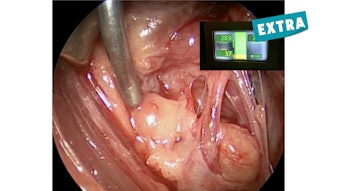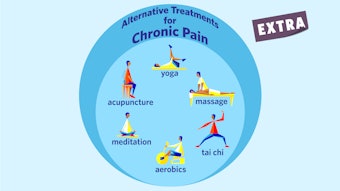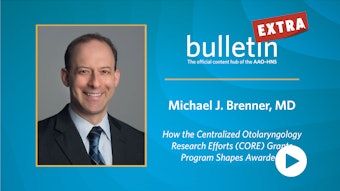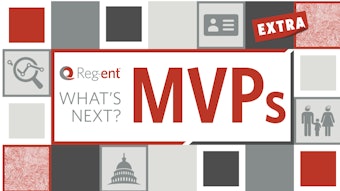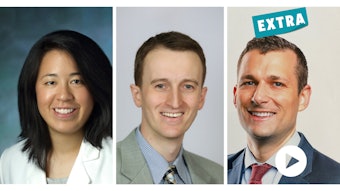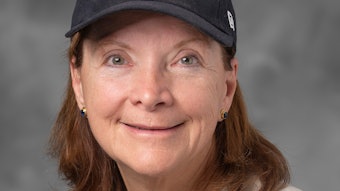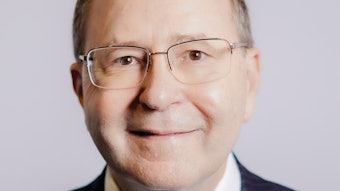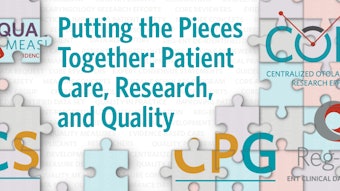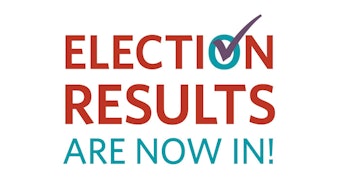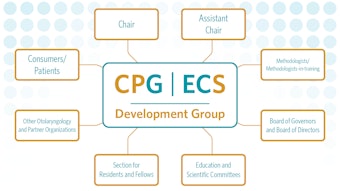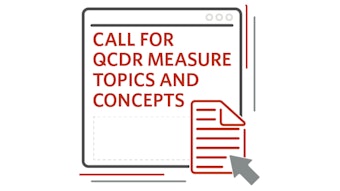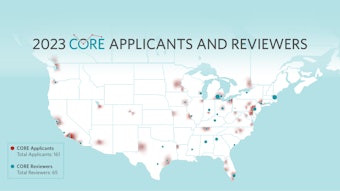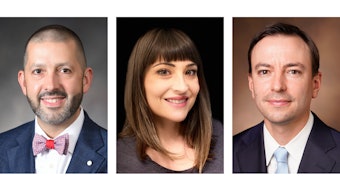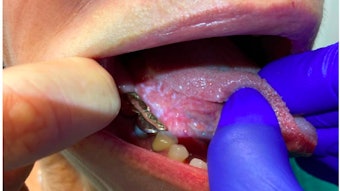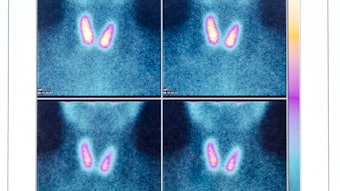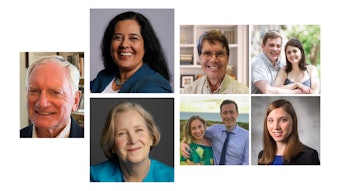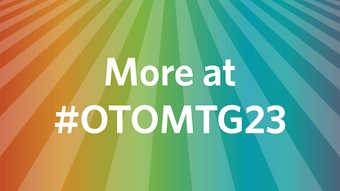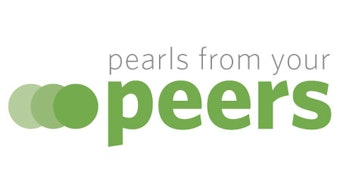2023 Board of Governors (BOG) Candidates
See the candidates’ statements below for the positions of BOG Chair-elect and BOG Secretary.
The BOG election will be held in person during the BOG General Assembly in Nashville, Tennessee, on Saturday, September 30, from 3:30 – 5:00 pm (CT). You must be present to vote.
BOG Chair-elect Candidates
Dole P. Baker, Jr., MD
What is the greatest challenge our specialty is currently facing, and how would you advocate for action through member engagement?
What specific initiatives would you recommend to strengthen the relationship and engagement opportunities between the AAO-HNS/F and state, local, and specialty societies?
 Dole P. Baker, Jr., MD
Dole P. Baker, Jr., MD
Much as a strong middle class ensures a vibrant and healthy society, strong private practices ensure access and quality care for patients throughout the United States and Canada in a variety of geographic settings. These practitioners identify and diagnose those patients requiring referral for tertiary care at our academic centers, where many of our Academy members and Board of Governors (BOG) representatives practice and work. Vibrant and socioeconomically healthy private practices, from both physician financial and satisfaction perspectives, compel large medical centers and private equity groups to appropriately compensate their employed otolaryngologists—both monetarily and through work-life balance—as they are forced to match the private practice benefits and rewards. Therefore, the continued existence within our specialty of a significant collection of robust, financially sound private practices—those practices owned and managed by otolaryngologists; both small groups and large regional groups—is vital to ensure the socioeconomic success of all otolaryngologists and the delivery of care to our patients.
If elected Chair of the BOG, I would work to first establish and strengthen the relationship of the BOG and its constituent societies with the members of the recently formed Private Practice Study Group (PPSG). Joint programming and engagement of our shared members would lead to the continued strengthening of both the BOG and the PPSG. I would also promote improved personal communication and outreach within the BOG and the Academy by having a BOG representative provide a brief update and be available to our members for any questions or to receive feedback at each local or state ENT meeting, or any of the sister society meetings.
The BOG is uniquely positioned to help affect the needed changes and support our specialties’ prosperity by addressing governmental and insurance issues along with local, regional, and national policies that are hindering us. By bridging together the various constituencies within the BOG, we will be more effective in facing and influencing these changes. More than 20 years of working in private practice, in a variety of settings, has provided me with the leadership and skills to pivot, adjust, and implement new services and processes in response to changing policies. These qualities coupled with my lengthy involvement in the BOG and Academy, along with leadership roles in the American Academy of Otolaryngic Allergy, have given me the tools to help guide our specialty as BOG Chair to a more solid and prosperous economic future.
Cristina Baldassari, MD
What is the greatest challenge our specialty is currently facing, and how would you advocate for action through member engagement?
What specific initiatives would you recommend to strengthen the relationship and engagement opportunities between the AAO-HNS/F and state, local, and specialty societies?
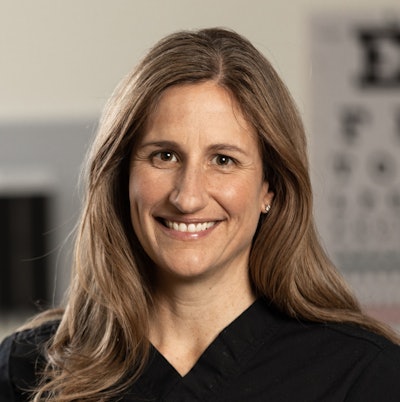 Cristina Baldassari, MD
Cristina Baldassari, MD
It is essential that otolaryngologists are educated about potential threats to our practices and are then engaged to effect change. I see the BOG taking a lead role in upcoming years in increasing engagement among all otolaryngologists, including colleagues from different practice types, geographic areas, and diverse backgrounds. It is essential that the BOG develop practical, streamlined resources that can be used by otolaryngologists to advocate on behalf of our practices and patients. Examples of potential podcasts and webinars include, “Affecting Change at Your Hospital” and “Local Politics Matter: How You Can Get Involved.”
To highlight the importance of this area, consideration could be given to developing an “Advocacy and Engagement” track at either the AAO-HNSF Annual Meeting & OTO Experience or the AAO-HNS/F Leadership Forum & BOG Spring Meeting. In order to ensure that physician independence is maintained, we must empower our members to assume leadership roles in our hospitals and increase participation in local, state, and national politics.
In past years, I have had the great pleasure of serving as the BOG Secretary, the BOG Representative for my state society, and as a member of the BOG Governance and Society Engagement Committee. These roles have allowed me to gain insight on how the BOG can serve as liaison between our smaller local societies and the AAO-HNS/F. In recent regional calls among our BOG societies, it was readily apparent there are some states and organizations that have thriving, effective societies and others whose societies were struggling to engage members and remain viable. To help address this, consideration should be given to developing a “Buddy” or “Partner” society program. Such a program could pair two participating BOG societies together for one year. In addition to sharing best practices and education content, there is the potential for resource sharing such as jointly supporting a lobbyist or administrator.
BOG Secretary Candidates
Priya D. Krishna, MD
What is the greatest challenge our specialty is currently facing, and how would you advocate for action through member engagement?
What specific initiatives would you recommend to strengthen the relationship and engagement opportunities between the AAO-HNS/F and state, local, and specialty societies?
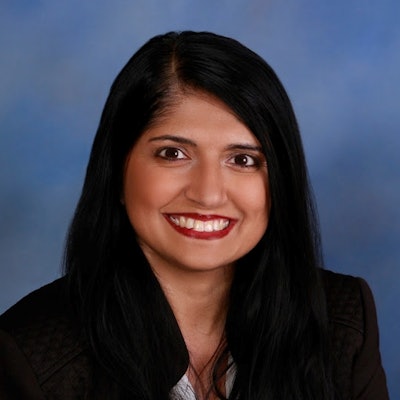 Priya D. Krishna, MD
Priya D. Krishna, MD
Whether it be in the form of Medicare pay cuts, onerous prior authorization issues, or overall decreasing otolaryngology compensation, money is at the root of these concerns. Some aspects of this morass we may be able to control, however, for those that we do have an opportunity to exert change, it is imperative that we do so. Member engagement is critical, and we've seen how it has worked on a larger level by the fact that concerted efforts from multiple medical organizations were able to stave off some of the proposed Medicare pay cuts at least for the time being. I would advocate for action by making legislative information to our regional and local societies more easily accessible, compact, and incisive.
I currently serve as BOG Governor from the Women in Otolaryngology Section and representative to the BOG Governance and Society Engagement Committee. In my time as part of the committee, I have seen the struggle in trying to corral our state and locoregional societies to increase engagement. Much of this lies in the fact that the information we have is not updated with regards to leadership of these societies, making it difficult to disseminate relevant information. One task would be to have this updated as completely as possible, which may have to be accomplished by cold calling. We would also need to establish a workflow to ensure it is updated regularly. Another initiative would be to continue using our “Meet and Greet” virtual meetings with local societies on a regional basis, which we were able to do successfully for the state of California. We have our State Tracker program and the ENT Advocacy Network, two resources that are also not being optimally used. Connecting these individuals with state and local association leaders would be another way to strengthen member engagement.
Yolanda L. Troublefield, MD, JD
What is the greatest challenge our specialty is currently facing, and how would you advocate for action through member engagement?
What specific initiatives would you recommend to strengthen the relationship and engagement opportunities between the AAO-HNS/F and state, local, and specialty societies?
 Yolanda L. Troublefield, MD, JD
Yolanda L. Troublefield, MD, JD
The AAO-HNS has meaningful relationships at the federal and state levels to address the aforementioned issues. In order to continue our work in this space, there is a need for enhanced member involvement. While our profession continues its dynamic growth, increasing participation in advocacy can be accomplished through education. For example, using regional campaigns and developing targeted podcasts and other easily accessible instruments, will aid in zeroing in on challenges faced by our profession. Such formats will energize our members and allow them to overcome time constraints and other barriers to participation. Increasing member action will directly impact our ability to make inroads to attack the Trilogy and other issues that arise, which impede our ability to care for our patients.
Forging practice-based solutions takes commitment and collaboration with like-minded entities. Strong association with entities such as the Alliance for Specialty Medicine, Surgical Quality Alliance, and the Health Coalition on Liability and Access are ideal vehicles to assist us in navigating nationwide issues. Developing local/regional corollaries will allow us to nimbly address geographical concerns. I believe that capitalizing on and adding to our existing assets will provide the AAO-HNS with important ways to address current healthcare dilemmas. For example, using our Regional Reps, State Trackers, and Socioeconomic and Grassroots Committee to develop regional coalitions with outside alliances will enhance our voice on various practice issues. As the AAO-HNS Legislative Chair, I observed the all-too-common occurrence of successfully navigating practice issues in one state only for the same issue to arise in an adjoining state. By developing regional coalitions based in advocacy, a coordinated and streamlined process to address practice/legislative/policy issues will evolve. As the healthcare ecosystem transforms, we must learn to not work in silos but to collaborate with our subspecialties and other surgical partners to advocate for forward-thinking patient care. By tapping our existing potential, we will remain leaders within the federal, state, and local policy framework that will leverage our diversity of thought and allow our members to successfully tackle challenges faced by our profession.
